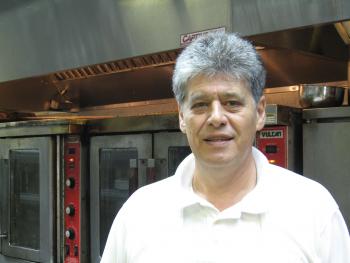George Trojanovich

Ethnicity in the Seafood Industry on the Mississippi Gulf Coast
Like any place where hard work could yield fortune, Biloxi’s seafood industry attracted immigrant labor – first Polish by way of Baltimore, then Croatians and Cajuns, and more recently, Vietnamese. Collected here are some of the stories of Biloxi’s shrimping past and present.
Georgo Trojanovich is, as he says, "The only real Croatian in Biloxi." But in a city as proud as this one is of its Croatian heritage, everyone here knows what he means: with the arrival of Croatian families tailing off by the second half of the 20th century, Georgo is one of the few - yes, perhaps only - Croatian-born immigrants in town. A distant relative of a local restaurateur, Georgo came as a teenager to escape Tito's Communist regime, working as a dishwasher at Mary Mahoney's restaurant. While feeling taken in by friends and the community, he struggled to learn the language, to acclimate to the food, but always knew that going home was not an option. He bought a house from money he'd saved from three years of constant work, learned to cook from a gifted mentor, rose to be the Chef of Mary Mahoney's to find himself, 20 years later, grilling a snapper for Ronald Reagan. Not bad work, you'd think, for a boy who'd never seen a shrimp until the age of 16.
Please Note: The oral histories in this collection are protected by copyright and have been created for educational, research and personal use as described by the Fair Use Doctrine in the U.S. Copyright law. Please reach out Voices@noaa.gov to let us know how these interviews are being used in your research, project, exhibit, etc. The Voices staff can help provide other useful resources related to your inquiry.
The NOAA mission is to understand and predict changes in climate, weather, oceans, and coasts, to share that knowledge and information with others, and to conserve and manage coastal and marine ecosystems and resources. The Voices Oral History Archives offers public access to a wide range of accounts, including historical materials that are products of their particular times, and may contain offensive language or negative stereotypes.
Voices Oral History Archives does not verify the accuracy of materials submitted to us. The opinions expressed in the interviews are those of the interviewee only. The interviews here have been made available to the public only after the interviewer has confirmed that they have obtained consent.
